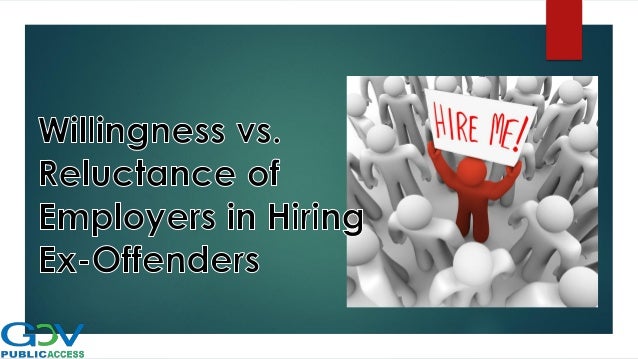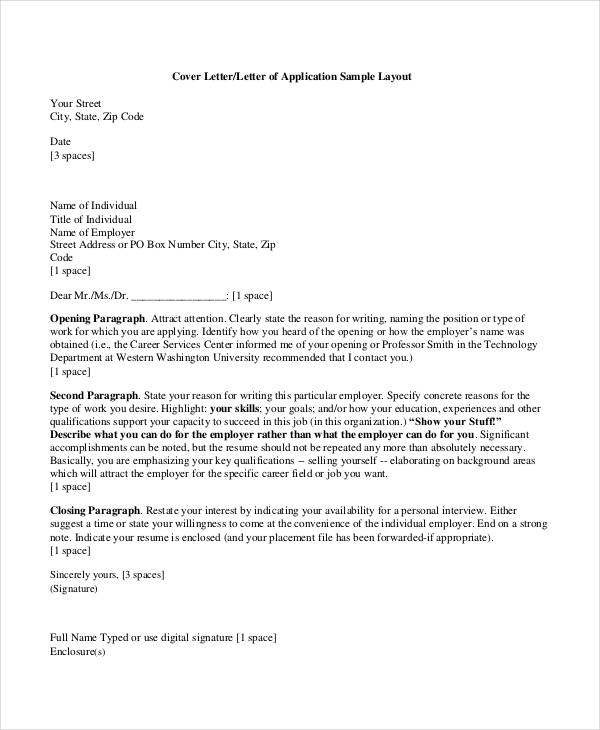Job interviews rely on behavioral interview questions such as ‘Give two examples of things you’ve done in previous jobs or school that demonstrate your willingness to work hard.’ These questions allow interviewers to understand how you have exhibited your skills and strengths in real-life settings. These can be more challenging to answer than traditional questions. Job interviews rely on behavioral interview questions such as 'Give two examples of things you've done in previous jobs or school that demonstrate your willingness to work hard.' These questions allow interviewers to understand how you have exhibited your skills and strengths in real-life settings. 10.20 Willingness to change. When your assumptions don’t work as expected re-calibrate and try another way. Desire and willingness to keep improving. Solving Problems at Work. Inevitably problems are a part of our daily lives. Problem solving skills are important for the career-minded professional.
A person tends to learn new things during all his life. It is very important to make your brain work and you will see that it never gets full. The more useful information it gets, the bigger number of new facts it wishes to learn.
Learning is very important in all spheres of life no matter whether it is business or internet marketing. Even employers often look for people with such important skill as the willingness to learn and now we will try to learn what it is and how it can help a person to develop.
What is a willingness to learn?
Willingness to learn is defined as a desire, wish or readiness to acquire new knowledge and develop. It means that a person does not want to stand in one place, wishes to be more qualified and keep up with the modern trends and tendencies. It refers to both professional competence and general education. Constant learning is crucial for achieving goals and being successful as it is the knowledge that can pave you the way to higher job positions and deserve the honor of other people, let alone feel more confident.
Why is the willingness to learn important?
You should never believe that learning is of utmost importance in order to impress other personalities. New knowledge can give you much more benefits including:
– Obtaining an ability to create something new. The number of precious ideas increases correspondingly with the knowledge acquired;
– Career success and promotion. Employees that never neglect to learn something new are valued by companies as only such staff can lead them to success;
– Being ready to solving problems and coping with unexpected difficulties. Educated people never give up when they face challenges and look for more effective ways how to combat them;
– Improvement of self-confidence;
– Becoming more flexible.
Ways to improve the willingness to learn skills
If you realize that willingness to learn is very important for your success and development, there are several ways how to improve it:
1. Repeat the words “Learning is a path to your dreams to come true” on a daily basis not to forget about its significance.
2. Surround yourself with educated and inspiring people who will help you to acquire new knowledge. Intelligent people can also be a source of precious knowledge.
3. Ask questions, look for advice and analyze opinions.
4. Read memories and life stories of successful people to learn from their experience.
5. Don’t be afraid of failures – make them a boost, incentive and motivation to learn further.
6. Find out the gaps that must be bridged and work on them harder.
7. Never take actions until you know why it is necessary to take it and how you should carry it out.
8. Avoid pride, arrogance and I-know-it-all syndrome to continue self-development.
Conclusion
The willingness to learn skill is a necessity both for children and adults and the more developed you will be the better future perspectives there are in front of you. Though it may seem that it is impossible to force yourself to acquire new knowledge, this skill can and must be developed. It will open new doors in your life and let you take the most of living in the modern world.

Latest posts by Noplag (see all)
- Periodix: intelligent job matching for freelancers | Noplag review - March 30, 2018
- Hard Work VS Talent: Who Beats Whom? - December 15, 2017
- Listening To Music While Doing Homework: Is It A Good Idea? - December 12, 2017

The truth of the matter is a potential employer is comparing your resume skills against two job descriptions: the position you applied for and the positions you could hold in the future. This is why showing willingness to learn on your resume is so important, especially for candidates early in your career. Your professional growth is a key element of the long term value you bring to your first job.
Don’t merely add willing to learn resume bullet. Narratives are more impressive, tailoring your accomplishments how you learned a new skill and applied that knowledge as a team player to help the organization grow.
Look at things from the perspective of the hiring manager. Believe it or not, the typical new hire is a significant investment for an organization – as much as several months salary for training, even more if they had to pay a fee to a recruiter. They may value your technical skills in the short term, but your long term potential will be dictated by your soft skills, positive attitude, leadership skills, organizational skills, and emotional intelligence. They’re looking for signs in your work history that demonstrate how you did this in your previous job.
Unleashing The Power of Narrative
One iron law of advertising: stories sell. Do you see that uber expensive canned food brand in the grocery story? There’s a story about the product.
Our goal is to find stories in your professional experience that showcase the adaptability skills that employers are looking for. Examples of how you were able to quickly learn new things and, more importantly, use them to make an impact.
While it is tempting to focus on hard skills or professional skills, since they are relevant to your current role, that’s trap. Those aren’t unique skills. Sure, you may have learned some technical skills like coding or financial modeling to get a project completed, but your competitor learned them too.
But someone who figured out how the US postal system sorts direct mail and used that knowledge to take 8% off the cost of mailing a 5 million piece program? You don’t see that every day. There is a person to be reckoned with (and hired).
Good stories aren’t simple. They’re not predictable. Where possible, they weave unique skills and a positive attitude into practical work experience and transferable skills. If the job seeker is telling the story and the audience asks: “Wow! Then what did you do?” You’re doing thing correctly.
I’m pretty sure I’m never going to be handed a job description that says: “must have experience waking up to find their factory in ruins from a fire, their bank loan cut off, and twenty families who depended on you for a paycheck”. But that’s a great start on talking about adaptability skills and leadership skills. “And then what did you do…..”
Pay Attention To The Details
You need to keep it real.
For example, don’t use this to pitch soft skills that are acquired over time, such as interpersonal skills and various communication skill sets. That’s not as believable: you don’t learn those in a single moment, at least rarely one that makes you look good. Focus on unique skills, even narrow ones, which can be acquired through a single project.
Be sure to align this with the broader story that you’re setting up with your resume objective. The last thing you want to do at a job interview is pitch your capabilities in one direction when you’re talking about work experience and contradicting yourself five minutes later when you’re talking about your long term career vision. I had a job candidate deliver a great pitch about wanting to become a data analyst only to reveal he was going to school for creative writing. That’s a rather sharp career change for one interview. If your career objective conflicts with the message you want to send, this is a good time to keep mum.
The same goes for social media, by the way. Make sure whatever your posting on your LinkedIn profile and Facebook is generally consistent with the story you’re pitching your prospective boss. There’s no sense in sabotaging your career success by making public statements at odds with your job application and resume. That career advice goes for any job market, by the way. Keep your story simple and stay consistent.
What should the resume say about you?
Like earlier mentioned, a resume is your marketing tool. It must reflect the best in you. Some of the considerations the potential employer wants from an applicant include the following:
- A resume must show a reflection of growth. Professional growth to most employers shows dedication to a certain career path. Proven, recognized growth also shows the potential you have as an applicant, and this means more productivity to the company. It is therefore essential to specifically outline recent success as well as near future ambitions.
- The drafted resume should also show the applicant as a teachable person. The world is ever changing. The applicant therefore should, be teachable in all spheres of life and not just on job matters. An employee that is open to learning is also open to new challenges. Willingness to learn shows a humble and a dedicated mind.

How long should the resume be?

There are many schools of thought about page count on a resume, each one with particular reasoning for recommending certain length. It is, however, important to note that all agree on one fact: a resume should be brief. The main reason why it is such an important thing to be brief is the time the hiring manager has to read resumes. The time they can spend on a single resume is approximately twenty seconds, so they can’t pay much attention to details. A resume, therefore, has a span of twenty seconds to prove the applicant’s worthiness (and their desire to learn).
Should an applicant possess all the skills needed by the company?
This is a hugely misunderstood issue. Although the company ideally has a specific list of soft or technical skills they want from the applicant, it is objectively hard to possess all the skills. For the applicant to win the company over on the skills question, the resume must stress intelligence over current skills, ability to learn new things, and more importantly, the motivation to learn. Showing willingness to learn through examples is always more important than the skills you currently possess.
The Wow Factor
Many potential employees can perform a specific task well. However, it is important to note that the employer is not hiring an average applicant. Here are some tips for giving your resume that “wow factor.”
- Be selective in words and phrases: In a hiring process, uniqueness is hugely synonymous with efficiency. How do you capitalize on this important aspect? Avoid resume clichés- these bland words and phrases can prevent a brilliant applicant from getting the job. Being specific is essential. Instead of saying you are good in decision making, it is more appealing to state particular details. This shows the hiring agency the needed conviction.
- Make use of action verbs: Verbs such as initiated, implemented, developed, and managed provide the resume the required convincing tone. These are your accomplishments, make sure the reader can feel that you did them.
- Be brief and compelling: A good resume should be concise. Although it is good to outline experience convincingly, it is vital to avoid being wordy.
- Align the resume with the company’s objectives and values: This is one of the most ignored aspects by most applicants. It is normal for an applicant to have a master resume, but sometimes there is a misconception that different companies want identical workers. Tuning the resume to the company’s values and objectives will set your resume apart. It is, therefore, necessary to research the company’s belief system and work philosophy before fine-tuning the resume.
- Polish the resume: This is a simple yet crucial aspect of a great resume. It is normal to make a grammatical mistake, but it is suicidal to submit a resume with an error. The resume must also be simple to read. There are many websites where one can check the readability index of text. Apart from clearing the resume of mistakes, it is essential to write the resume in a font that is universal and simple to read.
- The resume must be honest: Honesty in a resume indicates the robust moral code of an applicant. There is always a temptation to exaggerate some points in the resume, but it is important to note that sometimes skills and experience are not the only aspects the company looks for in a resume. Honesty and good communication skills are way more valuable than trophies.
- Quantify information: Anyone can write keywords. A good resume can put numbers on your accomplishments, and ideally link these results back to their impact on the business.
In a recruitment process, specifics are important. Vague information will cause your resume to blend in with all the rest. Details such as the number of years in a previous occupation give the recruiters more confidence in your particular resume. So instead of just indicating information, it is important to quantify the facts in the resume.
Where to place skills and experience on the resume

Where you put skills and personal knowledge depends on the applicant. Work experience almost always comes first. However, if the applicant is fresh from college, it is important to start with the education information on the top as opposed to skills and experiences. The education information, in this case, creates a good impression on the recruiters, hiding the lack of past job experiences. The idea in this section is to create a resume that is great and marketable.
Application For Willingness To Work Remotely
Most resume formats have an education section and a skills section. As mentioned before, don’t overdo the skills section: use that to plant the seeds of the themes you want to pitch in your work experience narratives. That gives you the ability to use relevant experience to prove your case. (some of the most basic employability skills)
Application For Willingness To Work Synonym
Want more tips for setting yourself apart on your resume? Check out these other great articles: